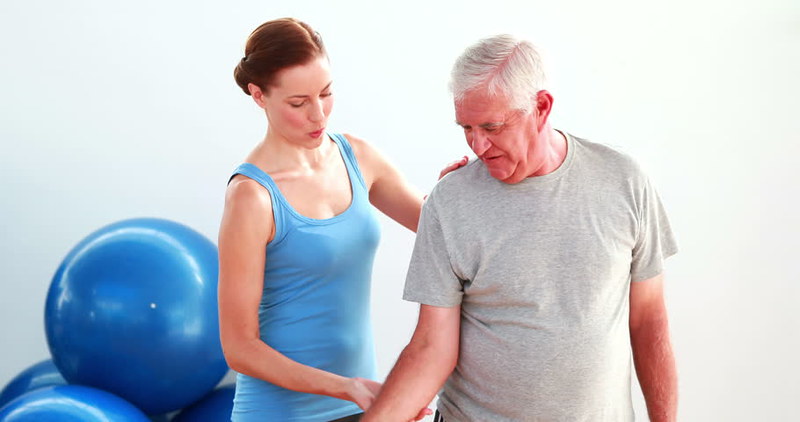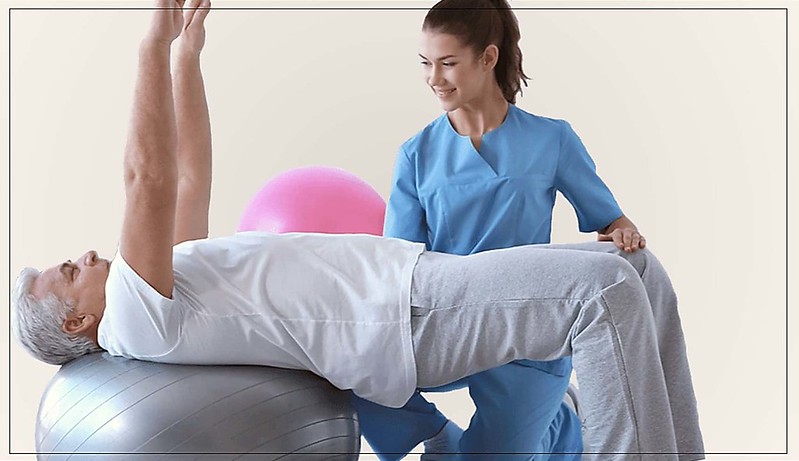SHARES

“The first steps were unbelievable. There was a lot of people there. Everyone was crying. I almost had to stop because I was crying so hard. It really took me a very long time to get there.” said Dan, 52, had a massive stroke that left him paralysed on his left side. After years of determination and perseverance, he finally recovers almost completely. “I have lost a lot during the process. But those pain changed my life for the better”.
Will I Walk Again After Stroke?
No two stroke patients are the same. Some recover in days or weeks, while others took years to a lifetime. About 65-85% of stroke patients in the US are back on their feet walking again within 6 months to a year. Yet, the road to recovery is rugged and will push your physical and mental limits to the hilt. You will have to be prepared to brave through very hard times.
Journey to Recovery
1. Accept Your Feelings: Be a Good Friend to Yourself, Always with Your Backing!
The initial phase will be harsh. You will have complex emotions that come together with your sense of loss. Fear and insecurity hits you quickly and you may find yourself becoming very demanding and hard to reason with. This can suffocate yourself and the people around you. You will need these people, especially yourself, to be with you throughout the hard times. Accordingly, take some time to understand this feeling. Then, gently tell them (including yourself) that you’re afraid and need their company.
Then, anxiety will flood you with questions, those with answers and those without. As you learn and work your way through the puzzle, if you’re lucky, you found one comforting piece of wisdom. During other times, you get frustrated, shameful and throw an anger outburst. This is totally normal and is a little price you have to pay for trying. The good news is, you’re trying! Keep that up! Take time to rest and pamper yourself a little.
More often than not, you will find yourself at the verge of giving up. All the setbacks, failure, misunderstandings and heartache will take its toll on you. This drowns you with sadness and hopelessness. Eventually, you find yourself lacking motivation, drained of energy, and too tired to face anyone. Give yourself some time. This is the phase where there is much to give up, including a part of yourself. Enjoy some time alone. Mourn your losses and bury them with grace. Take this chance to look deeper into yourself. Like the wise saying goes, “A buried treasure only reveals itself to those who seek”. In time, you will find solace in relearning your innate potential.
2. Learn Your Way to Recovery
Read and find out more information about your condition. Always get help from people around you such as your team of healthcare providers, family and friends. Joining support group can be very helpful. You can learn from other survivors how they cope, while supporting each other. Note that when stroke affects your ability to understand or produce speech (aphasia), joining an aphasia support or rehabilitation group would be very useful.
In addition, gaining the knowledge of your rehabilitation is very good too. This helps your brain in relearning, imagining and visualizing the movement. In fact, the brain has the ability to change and form new network continuously throughout our life (neuroplasticity). This is why you’re exercising everyday during your recovery, as physical exercise nurtures new connections in the neural network.
Besides, your relationship with people around you will be affected. You would be less close to your friends and colleagues. As your family dynamic changes, you may hurt one another unintentionally. There are much to learn, to understand, and to communicate in these times of uncertainty.
3. Participate in Your Care
Get involved in your rehabilitation plan and discuss your needs. Learning to take care of your health is a lifetime responsibility to prevent another stroke. You would want to change and live a healthier lifestyle. Mind what you eat and learn the importance of your medication. More importantly, work closely together with your team of healthcare professionals as well as your friends and family.
Conclusion
To date, recovery from stroke is a long and rough road that many courageous and tenacious survivors are travelling on. Having said so, recent discoveries of new therapy targeted at repairing the damaged brain are showing good results (eg. stem cell therapy). The future may hold promise for shorter recovery from stroke. Even so, the key combination of our attitude, perseverance and positive mindset continues to be paramount to a successful stroke recovery.
Find a Neurologist or Physiotherapist in Malaysia, on GetDoc
Find a Neurologist or Physiotherapist in Singapore, on GetDoc
References:
- Hoffman H. What to expect when recovering from a stroke [Internet]. Saebo. 2020. (Available from: https://www.saebo.com/expect-recovering-stroke/; last updated on 2017 Feb 16; last accessed on 2020 Jan 12)
- Steinbaum SR. Walking, driving, and moving around after a stroke [WebMD]. WebMD LLC. 2020. (Available from: https://www.webmd.com/stroke/walking-mobility-after-stroke#1; last updated on 2019 Aug 27; last accessed on 2020 Jan 12)
by Chang Xian
View all articles by Chang Xian.







